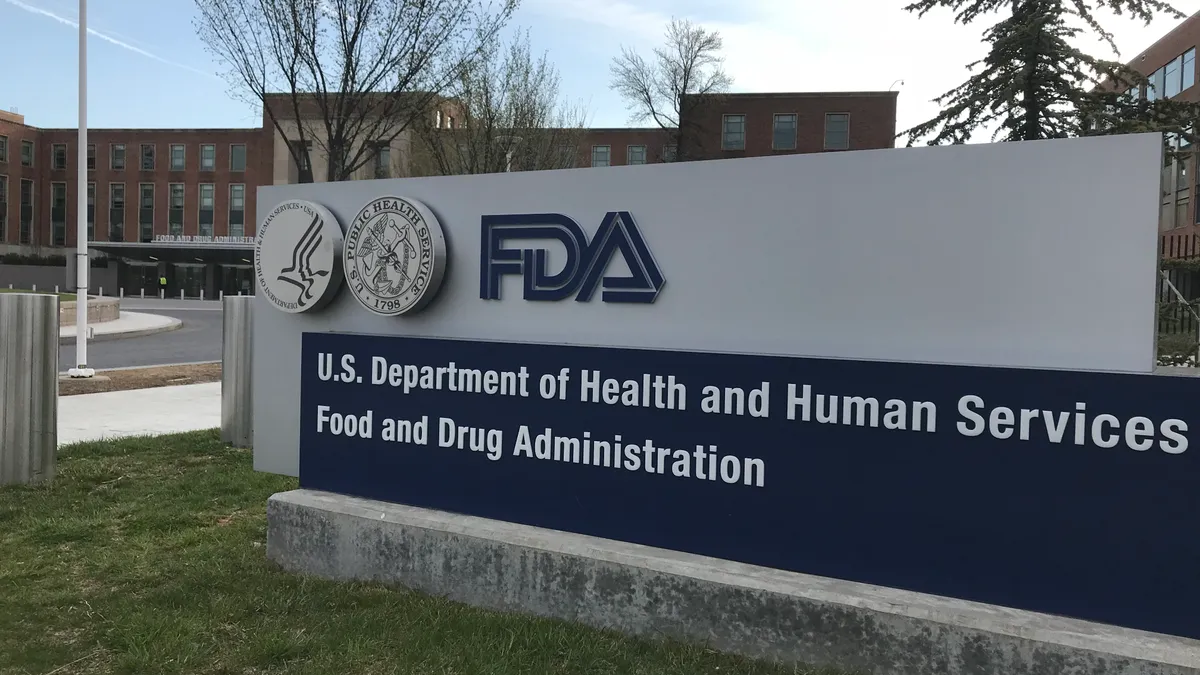Dive Brief:
- FDA has granted its first two emergency use authorizations for extracorporeal blood purification systems during the coronavirus public health emergency to Terumo and Marker Therapeutics, followed by one to CytoSorbents.
- The devices are designed to reduce the amount of cytokines and other inflammatory proteins in COVID-19 patients admitted to the intensive care unit with confirmed or imminent respiratory failure.
- The agency also OK'd additional devices to decontaminate N95 and N95-equivalent respirators so that they may be reused, awarding EUAs to Steris and Advanced Sterilization Products. The two systems can collectively increase daily U.S. mask decontamination capacity by about 4.75 million masks.
Dive Insight:
The EUAs offer additional tools to treat sick patients and protect the healthcare workers providing care.
With the green light for Terumo and Marker's blood purification system, FDA is paving the way for a potential therapy for adult patients in the ICU confirmed to have COVID-19. The Spectra Optia Apheresis System works with Marker Therapeutics' Depuro D2000 Adsorption Cartridge to reduce the amount of cytokines and other inflammatory proteins in the bloodstream that control a cell’s immune response. The system filters the blood and returns it to the patient.
The proteins removed are often elevated during infection and can be associated with a “cytokine storm” that in some COVID-19 patients causes severe inflammation, shock, respiratory failure, organ failure and death, FDA said.
“We are expediting the availability of a treatment option for patients in the ICU to help reduce the severity of the disease," FDA Commissioner Stephen Hahn said in a statement. "Our staff will continue our around the clock review of all medical products to expedite the availability of treatments to help fight this devastating disease.”
The agency followed that initial blood purification EUA with one to CytoSorbents a day later.
On the protective equipment front, Steris on Thursday gained its EUA for respirator decontamination allowing use of existing equipment in hospitals to sterilize N95 masks on site with the 28-minute Non-Lumen Cycle available on most models of Steris' V-Pro low temperature systems. With the sterilizers already in about 2,000 U.S. hospitals, authorizing the system for use during the public health emergency will facilitate decontamination of about 750,000 N95 respirators a day in the United States, FDA said.
Steris, which said it received testing support from 3M, said it recommends decontaminating masks after each use, up to a maximum of 10 times per mask. The same healthcare professional should use the mask following decontamination.
Two days later, FDA authorized a similar technology from Advanced Sterilization Products, which Johnson & Johnson last year divested in a $2.8 billion deal to industrial conglomerate Fortive Corporation. There are approximately 9,930 of its Sterrad sterilization systems in about 6,300 hospitals across the country. The devices can decontaminate roughly 4 million N95 or N95-equivalent respirators per day in the U.S. to be reused by healthcare workers in hospital settings, FDA said in a statement Sunday.
Different variations of the system take 24, 28, or 55 minutes to reprocess masks, and each can reprocess approximately 480 respirators per day, according to the agency.
FDA first awarded an EUA to such a device on March 28. That initial system, the critical care decontamination system from Battelle, can reprocess 80,000 masks per day.
Underscoring the critical need for respirators for healthcare workers, the Department of Defense last week announced a $133 million project to ramp up N95 mask production by more than 39 million over the next 90 days under a special authorization.










